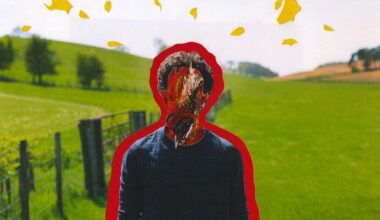Ernesto Cárcamo Cavazos is a Mexican composer and guitarist of contemporary acoustic and electronic music. Ernesto´s last project “El movimiento en la quietud” is a web-based sonic experience that takes the listener in an imaginary walk, weaving in and out the unique soundscapes and contemporary music scenes in Mexico City and Berlin.
FACTS:
1: All terrestrial plants are mostly built from air.
2: A circle is a polygon with an infinite number of sides.
3: Meatloaf would do anything for love, but he won’t do that.
QUESTIONS:
1. What is the biggest inspiration for your music?
I take many ideas from every-day sounds, trying to find musical meaning in the sounds around us like insects, traffic, wind, printers, voices, bottles, etc. On top of that, I like to try something new in every project that I’m able to, so I look for inspiration from other musicians and artistic disciplines like theater, dance, film, and visual art, thinking of musical analogues to their theories and practices. Collaboration in a diversity of projects is then key in my growth as a musician, as I bring the experiences from these into my solo work.
2. How and when did you get into making music?
I started playing guitar around 9 years old because of my older brothers, both of who are amateur metal musicians and I wanted to be part of the band. I didn’t end up joining because I moved away and I was a pain of a little brother, but I stayed with music and made my own way into the experimental field.
3. What are 5 of your favourite albums of all time?
Horatiu Radulescu – Intimate Rituals
Gérard Grisey – Les espaces acoustiques
Sigur Rós – ()
Kikagaku Moyo – House in the Tall Grass
John Luther Adams – The Mathematics of Resonant Bodies
4. What do you associate with Berlin?
The experimental music scene and the sense of community and camaraderie in the art scene in general. I came to Berlin in 2017 without knowing anybody in the scene and was quickly accepted and included without judgement, even if they didn’t know my work. Even during the corona era it has stayed open and inclusive, striving to survive and stay true to its inclusion and experimentation rather than profitability.
5. What’s your favourite place in your town?
The campus of the UNAM university – Ciudad Universitaria. I used to go there often as a kid while my parents were still studying so it’s always felt like my own huge, personal playground.
6. If there was no music in the world, what would you do instead?
Probably a wacky inventor of useless things.
7. What was the last record/music you bought?
Matt Evans – New Topographies.
8. Who would you most like to collaborate with?
It would be a toss up between John Cage and Baby Metal.
9. What was your best gig (as performer or spectator)?
It’s tough to say, but I’d have to say Melt Banana in Philadelphia. The venue was a small bar and the band was just a few meters from the audience but the energy that they gave felt like they were performing at a huge arena and we behaved like so. As a close second would be “Steven Schick at 60” solo percussion concert when he played “Toucher” by Vinko Globokar and I couldn’t talk for a few hours after.
10. How important is technology to your creative process?
Technology has become paramount in all music I work on. From using the studio as a compositional tool to developing my own patches, technology is in almost everything I produce even if it’s not apparent. I studied and was trained in instrumental composition, but I still use algorithmic tools and programming to write music for and improvise with traditional instruments.
11. Do you have siblings and how do they feel about your career/art?
I have two older brothers and two older sisters. They have all supported me throughout my career without questioning my choices even though my experimental focus has been challenging for a few of them.
Ernesto Cárcamo Cavazos received an Arts Bachelor degree in music composition from Brown University in 2009, under the tutelage of Gerald Shapiro where he received the Ron Nelson Award for Music Compositional Excellence. Directly following in 2011, he received an MA in composition from Mills College in California, having studied composition with Roscoe Mitchell and Fred Frith receiving the Margaret Lyon Prize for Outstanding Music Student.
Photo © Ernesto Cárcamo Cavazos


